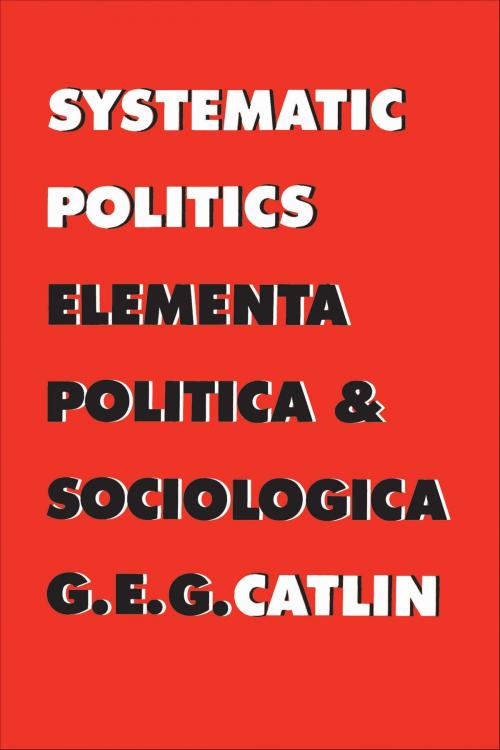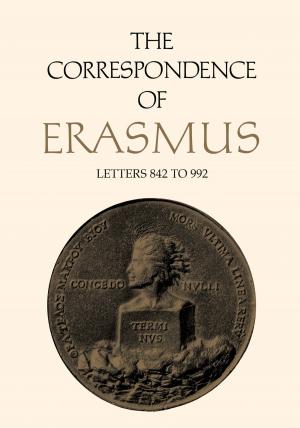Systematic Politics
Nonfiction, Religion & Spirituality, Philosophy, Political, Social & Cultural Studies, Political Science| Author: | George E. Gordon Catlin | ISBN: | 9781442654549 |
| Publisher: | University of Toronto Press, Scholarly Publishing Division | Publication: | December 15, 1962 |
| Imprint: | Language: | English |
| Author: | George E. Gordon Catlin |
| ISBN: | 9781442654549 |
| Publisher: | University of Toronto Press, Scholarly Publishing Division |
| Publication: | December 15, 1962 |
| Imprint: | |
| Language: | English |
Professor Catlin in the course of his career has contributed a number of major works in the fields of politics: The Science and Method of Politics (1926), Principles of Politics (1930), History of the Political Philosophers (1938). These books were considered "refreshing," "brilliant," "eminently stimulating," "genuinely constructive." The trail blazed by their author some thirty years ago through the forest of "unscientific" political thinking has since been followed by many others and has widened into one of the main highways of twentieth-century political though.
The new approach of Professor Catlin was notable because it distinguished between political philosophy, with its values and ends, and the scientific study of means; it broke away from older studies and broadened the concept of Politics, in an Aristotelian sense; it bridged the divorce between Politics and Sociology; it stressed the quantitative method; it pioneered in the "power theory of politics," as a key hypothesis in building; and it developed the theories of equilibrium and of the political market, with its pressure groups. No political science can be formulated today which ignores his arguments on these topics.
In this new work, Professor Catlin goes back to cover the developments of thirty years, integrating the work of his contemporary colleagues and relating it to the broad tradition of Western philosophy. The range of the book over time and topics is exhilaratingly wide; its content is often intellectually intoxicating. Many will appreciate the clear insight and understanding that the book lends of so much in life–not just in the fields traditionally assigned to political thinkers; others may be provoked by the author's strong argumentative sense. No one will deny the vigour and relevance of the discussion. This summational work is important and practical at a time when the political endeavours of man are more than ever in need of thoroughly rigorous logical analysis.
Professor Catlin in the course of his career has contributed a number of major works in the fields of politics: The Science and Method of Politics (1926), Principles of Politics (1930), History of the Political Philosophers (1938). These books were considered "refreshing," "brilliant," "eminently stimulating," "genuinely constructive." The trail blazed by their author some thirty years ago through the forest of "unscientific" political thinking has since been followed by many others and has widened into one of the main highways of twentieth-century political though.
The new approach of Professor Catlin was notable because it distinguished between political philosophy, with its values and ends, and the scientific study of means; it broke away from older studies and broadened the concept of Politics, in an Aristotelian sense; it bridged the divorce between Politics and Sociology; it stressed the quantitative method; it pioneered in the "power theory of politics," as a key hypothesis in building; and it developed the theories of equilibrium and of the political market, with its pressure groups. No political science can be formulated today which ignores his arguments on these topics.
In this new work, Professor Catlin goes back to cover the developments of thirty years, integrating the work of his contemporary colleagues and relating it to the broad tradition of Western philosophy. The range of the book over time and topics is exhilaratingly wide; its content is often intellectually intoxicating. Many will appreciate the clear insight and understanding that the book lends of so much in life–not just in the fields traditionally assigned to political thinkers; others may be provoked by the author's strong argumentative sense. No one will deny the vigour and relevance of the discussion. This summational work is important and practical at a time when the political endeavours of man are more than ever in need of thoroughly rigorous logical analysis.















